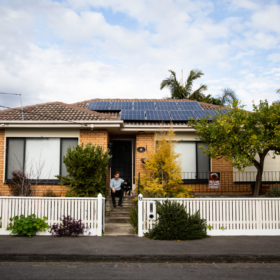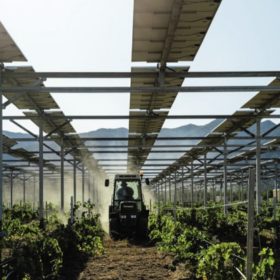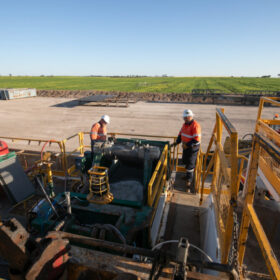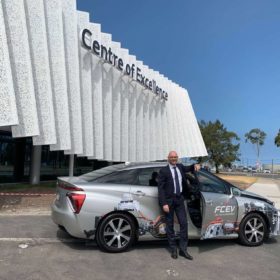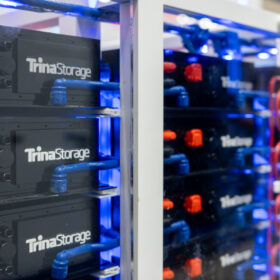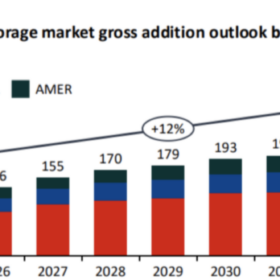AIKO showcases ABC modules ahead of Australian launch
Chinese solar panel manufacturer AIKO unveiled its solar cell technology at Melbourne’s All-Energy event last week ahead of an impending entry into the Australian market.
Commbank launches interest-free loans for solar and battery systems
One of Australia’s “big four” banks, the Commonwealth Bank, will begin offering interest-free finance up to $30,000 to install rooftop solar and home batteries with select merchants. The program will also allow customers to split repayments into instalments over one to five years.
Agrivoltaics and the art of farming under cover
Ground-mounted PV is increasingly being investigated not only as a renewable generator, but as shelter for crops and creatures under fire from climate change. Last week’s All Energy conference handed the mike to some pioneers in the field.
‘Active natural hydrogen field’ confirmed in SA’s Yorke Peninsula
Australian natural hydrogen explorer Gold Hydrogen says it has confirmed an “active natural hydrogen field” in South Australia with purities nearly matching those accidentally discovered 100 years ago. The results come from Australia’s first dedicated natural hydrogen exploration well.
SunDrive lands $11 million to scale ‘breakthrough copper technology’ solar cells to 100+ MW
SunDrive Solar, a Sydney-based startup working to replace the silver in solar cells with copper, has been allocated $11 million (USD 7 million) by ARENA to expand its metallised cell production to a commercial scale of more than 100 MW per annum. Few details or timeframes for the scaling have been provided, however.
ARENA doles out record funding as Australia’s renewable schemes ramp up
The Commonwealth government’s Australian Renewable Energy Agency (ARENA) approved record funds in FY22/23, allocating $544.1 million (USD 345 million) to 60 projects in the year.
Array ready to branch out in Australia after delivering locally manufactured trackers
US solar tracker company Array Technologies is ready to expand its Australian presence after successfully delivering locally manufactured solar trackers for the 102 MW Glenrowan solar farm in mid-north Victoria.
North Queensland transmission project gets $1.3 billion injection
The Queensland government has announced $1.3 billion (USD 820 million) package to fund the next stages of its major transmission CopperString 2032 project, targeting construction in mid-2024. The transmission line will connect the critical minerals-rich region of North Queensland to renewable energy projects to hopefully kickstart green processing and manufacturing.
Trina unveils new 4 MWh battery fully manufactured in house, pushing into bullish battery segment
Trina has unveiled its new utility-scale battery, the Elementa 2, at Melbourne’s All-Energy conference. The company is offering design engineering services to support uptake of the 2 MW / 4 MWh LFP battery for Australian projects.
Quinbrook announces green polysilicon manufacturing plant in North Queensland
Renewables investor Quinbrook Infrastructure Partners has announced plans to develop a green polysilicon manufacturing plant in North Queensland’s Lansdown Eco-Industrial Precinct. Quinbrook has been conditionally allocated a 200-hectare at the site, and is looking for an operational parter to complete the vertical play.

